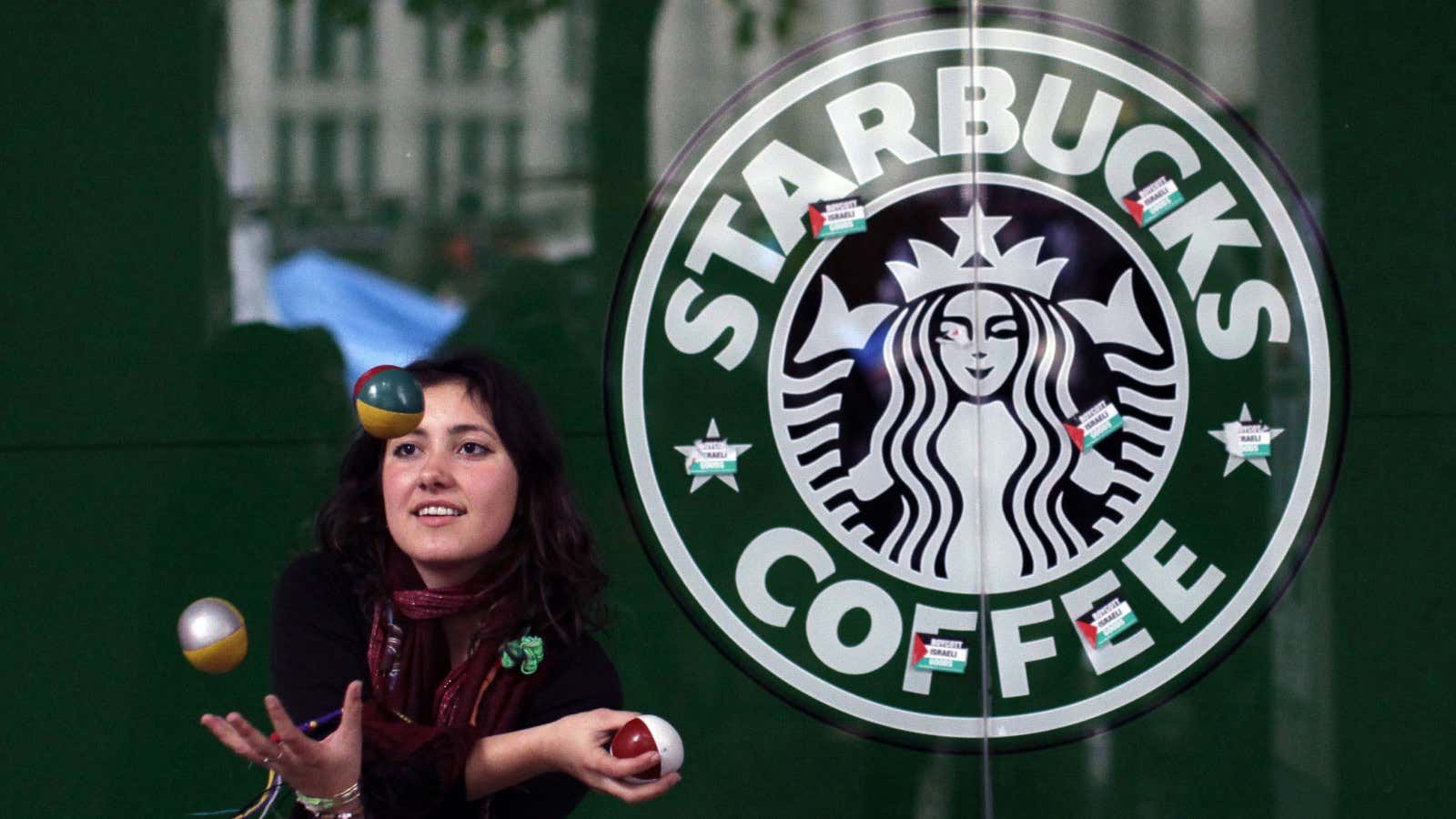Starbucks and Fiat will each have to pay between €20-30 million ($22-34 million) in taxes that they avoided by using complex structures agreed with particular European nations.
The European Commission has ruled that the arrangements made between European car maker Fiat and Luxembourg, where it is based, were artificial and complex, allowing it to pay tax on only some of its actual accounting capital, and at a low rate. In the Netherlands, the Commission said that US coffee giant Starbucks had paid inflated prices to a Swiss arm of its own group for coffee beans, and to a UK-based company, also part of its group, for “coffee-roasting know-how.”
Smaller companies and protestors over those that don’t pay taxes might look to Margrethe Vestager, the bureaucrat in charge of competition policy, as a crusader. Since taking on the job, Vestager has challenged some of the world’s most powerful corporations from Google to Gazprom, the Russian energy giant.
“Tax rulings that artificially reduce a company’s tax burden are not in line with EU state aid rules,” she said in a press release after today’s ruling. “They are illegal. All companies, big or small, multinational or not, should pay their fair share of tax.”
It’s been a long-running, closely-watched case. And now that the ruling has come through, lots of others will be gearing up for the fallout.
Companies and countries are nervous
Some companies will be readying themselves for their own moment in the spotlight. Apple, Google, Amazon, and Qualcomm are all subject to probes. Multinational firms with bases in several different countries have been accused for some time of creative accounting, which has changed some practices already. Earlier this year, Amazon changed the way it paid tax in Europe.
Starbucks even voluntarily overpaid tax in the UK after its barely-existent taxes became an issue there.
Other multinational companies will think harder about how to account—and how to do business in Europe. The big problem here is uncertainty. If the Commission can overturn agreements made by a government, companies will ask what assurance they can ever have that changes won’t be made retroactively?
“For competition authorities to challenge very technical tax rulings by competent authorities in this way is extremely destabilizing,” said Heather Self, a partner at law firm Pinsent Masons, in the Guardian.
Countries in Europe that use friendly corporate tax regimes as a draw for international business, like Ireland, will also be checking their paperwork. The Commission ruled that, in themselves, so-called “comfort letters” from a state regime to a company—which are designed to make tax practices clear—are not illegal. Problems arise when the state endorses accounting that allows for even greater savings than those available under normal circumstances.
Small and medium enterprises, lacking the complex structures, money to pay for expertise, and bases or arms in multiple countries, are less likely to be able to avoid tax legally. It’s those smaller companies that lose out most heavily, the Commission said, because they are taxed on their actual profits, and pay market prices for the goods and services they use.
Untangling the tax web is an unenviable job which might lead to a fairer system, or to windfalls for the EU, or to more and different corporate strategies for paying as little as possible. Starbucks has said it will appeal the ruling.
